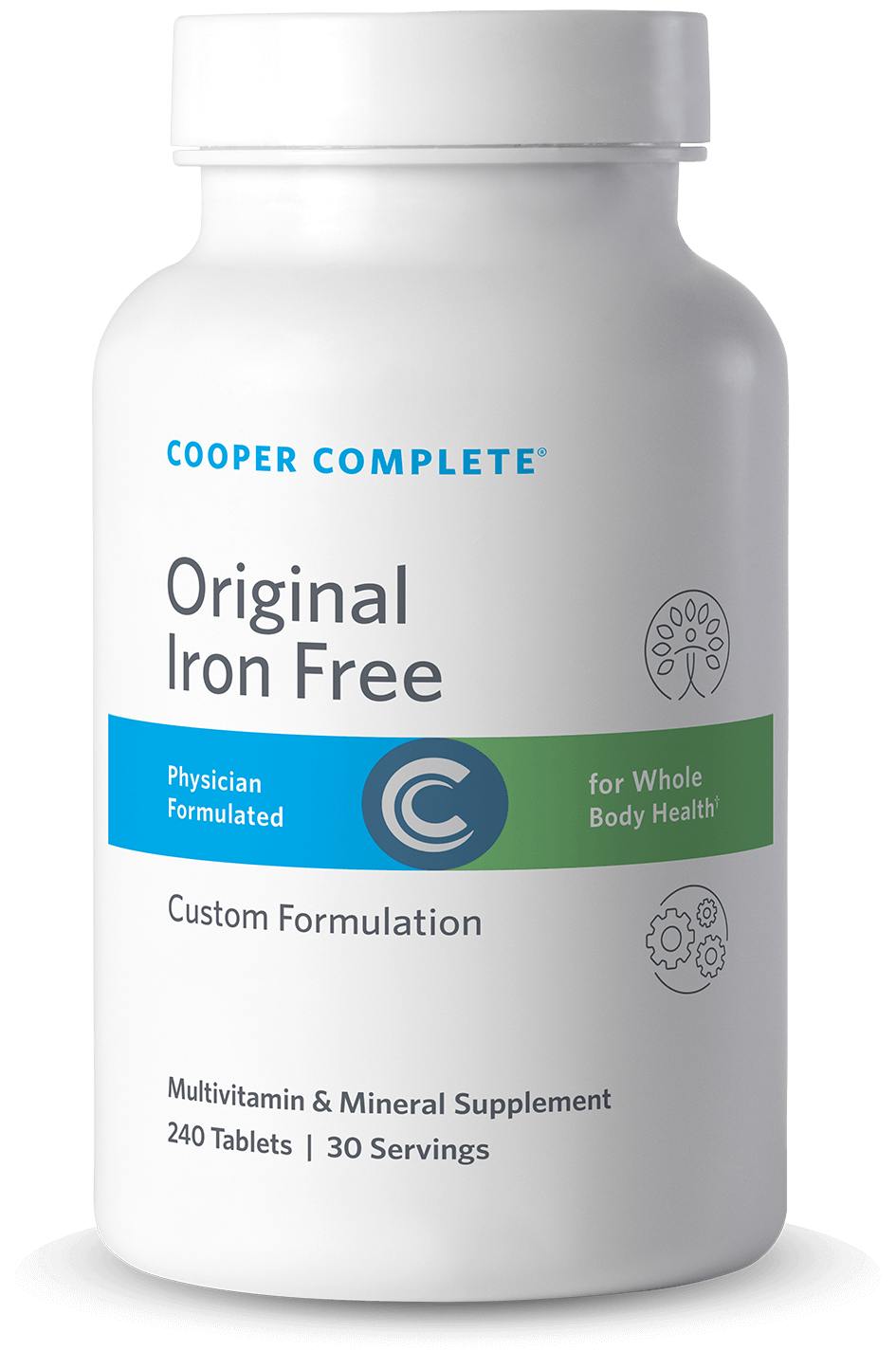Why Minerals Matter: Part II

For many of us, high school science class was a long time ago, which means knowing and understanding what minerals are might not be fresh in our minds. According to the Food and Drug Administration (FDA), minerals are inorganic substances not made by living things. Instead, minerals are found naturally in soil and water and are then absorbed by plants or eaten by people and other animals.
Because minerals are not found naturally in our bodies, it’s important that we’re eating nutrient-rich foods in order to obtain the minerals our bodies need. In a previous article, we discussed the different kinds of minerals (macromineral vs. trace mineral) and ways you can get more minerals into our diet.
Below, we continue our series about “Why Minerals Matter” and discuss why the four minerals listed below play extremely important roles in the health and longevity of our bodies.
Iodine (trace mineral)
- Benefits: Food fuels our bodies and iodine can be credited for that, as it’s needed for cells to convert the food we eat into energy our bodies can use. According to the National Institutes of Health, iodine can help prevent breast cancer, eye disease, diabetes, heart disease and stroke. It can be applied to the skin for inflammation (dermatitis) and other skin disorders such as eczema and psoriasis.
- Recommended Daily Value: It’s recommended that males and females over the age of 14 consume 150 micrograms (mcg)/day. Pregnant women should get 220 mcg/day and children under the age of 9 should only consume 90 mcg/day.
- Food Sources: The body can’t make iodine on its own, which means it must come from our diet. The most common source of iodine is table salt, which is often iodized (iodine is added). Other great sources include sea vegetables—such as seaweed and kelp—seafood cod, sea bass, dairy products, breads and cereals, cranberries, navy beans, strawberries and potatoes.
- Supplement Options: If you’re not getting enough iodine through the foods you eat, try Cooper Complete Original Multivitamins, which contain the daily recommended value of 150 mcg. The iodine comes from kelp, one of the top food sources.

Original Comprehensive Multivitamin Iron Free
Experience the difference - top-rated physician-formulated and recommended multivitamin and mineral supplement packed with 25 key vitamins and minerals, including Zinc, Magnesium, Potassium, Biotin, Selenium, Copper, Vitamins A, C, D, E, K, and activated B vitamins.†
$54.98 Add to cartManganese (trace mineral)
- Benefits: Manganese, while not a mineral familiar to many, is considered an essential nutrient. The mineral aids in processing cholesterol, carbohydrates and protein. Manganese can be used to help those who suffer from weak bones or osteoporosis. It can also help those who suffer from anemia and can help improve symptoms of premenstrual syndrome. Manganese may also protect against free radicals and is important in maintaining healthy connective tissue in skin.
- Recommended Daily Value: It’s recommended that adults receive 11 milligrams (mg)/day. The National Institutes of Health recommends adults not consume more than 11 mg/day of manganese because larger amounts can lead to toxicity.
- Food Sources: Manganese is in whole grains, nuts, and leafy vegetables. Brown rice, garbanzo beans, kale, spinach and oats are excellent sources. Manganese is also in tea, so enjoy a glass of iced or hot tea to help boost your level.
Phosphorus (macromineral)
- Benefits: Phosphorus makes up about one percent of total body weight and is the second most abundant mineral in the body, after calcium. The mineral can be found in every cell and, like calcium, is concentrated in bones and teeth. It also assists in kidney function, muscle contractions and nerve signaling.
- Recommended Daily Value: Phosphorus is extremely important, especially for children and teens who are rapidly growing. That’s why 1,250 mg/day is recommended for those between the ages of 9-18. After 18, the recommended value drops to 700 mg/day.
- Food Sources: Phosphorus is naturally found in protein-rich foods such as meat, poultry, fish, nuts, beans and dairy.
- Supplement Options: If you’re not getting the recommended amount of phosphorus from your diet, try supplementing with Cooper Complete Original Multivitamins which contain 160 mg.
Selenium (trace mineral)
- Benefits: Selenium is an essential mineral needed for overall health. It’s important for reproduction, thyroid gland function and DNA production. Selenium also helps protect the body from damage caused by free radicals and viral infections.
- Recommended Daily Value: It’s recommended that adults and teens age 14 and older receive 55 mcg/day. Pregnant women should increase their dosage to 60 mcg/day and children under the age of 8 should only ingest 20-30 mcg/day.
- Food Sources: Selenium is found naturally in many foods. That’s because the soil is generally rich in this mineral. For animals, eating foods that come from selenium-rich soil is also helpful. Selenium-rich food sources include grain products (such as cereals and wheat bread), chicken, eggs and dairy (such as cottage cheese) and seafood (such as tuna and halibut). Brazil nuts contain more selenium than any other food, with 544 mcg in a one-ounce serving of 6-8 nuts.
- Supplement Options: Needing to supplement? If you eat a selenium-rich diet and just need a small boost, try the Original Multivitamins which contain 100 mcg.
As always, Cooper Clinic recommends a “food first” philosophy, meaning the nutrients your body receives should come from your diet, first. To find out more about minerals and the entire line of Cooper Complete supplements, please browse our health tips.
Article provided by Cooper Complete team.
